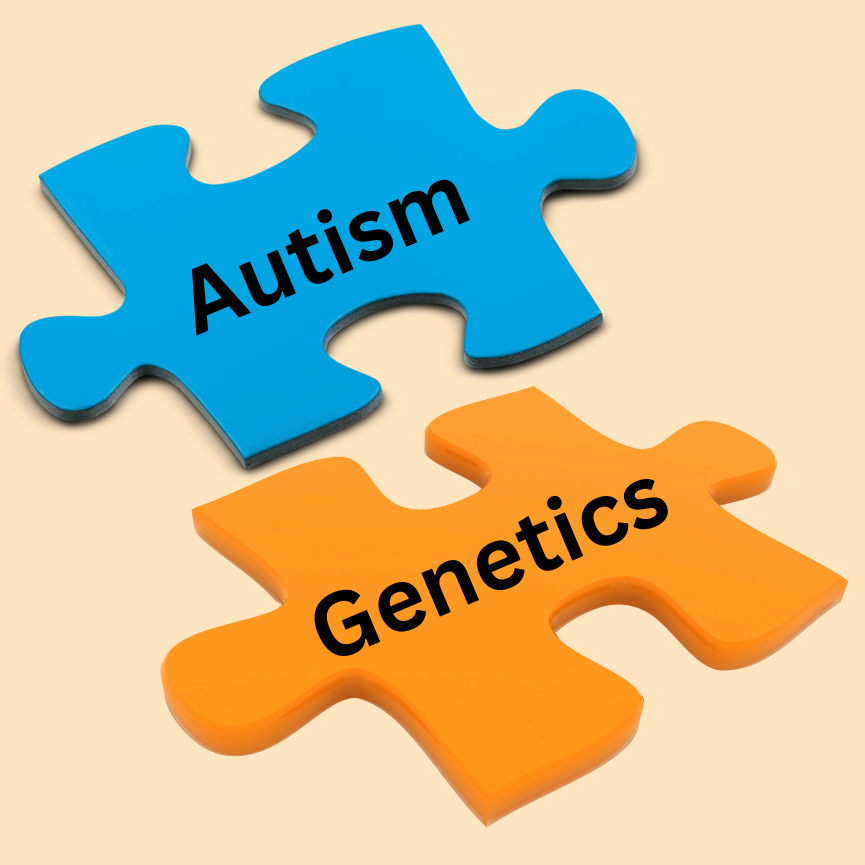
- May 09, 2024
- 114 Views
- 0 Comments
Delving Into Autism And Genetics
Autism is a complex neurodevelopmental disorder that affects social interaction, communication, and behavior. The causes of autism are not yet fully understood, but research has shown that genetics plays a significant role in its development. This article will explore the link between autism and genetics in India, including current research and potential implications for families and healthcare providers.
Genetics and Autism: Understanding the Link
Autism spectrum disorder (ASD) is a highly heritable condition, with research suggesting that genetic factors contribute to its development in up to 80% of cases. This means that individuals with a family history of autism are at a higher risk of developing the disorder themselves.
The genetic basis of autism is complex, with multiple genes thought to be involved in its development. While no single gene has been identified as the sole cause of autism, research has shown that mutations or variations in several genes can increase an individual's risk of developing the condition.
One of the most well-known genes associated with autism is the SHANK3 gene, which is responsible for producing a protein that plays a crucial role in the development and function of synapses, the connections between neurons in the brain. Mutations in this gene have been linked to an increased risk of autism, as well as other neurodevelopmental disorders.
Other genes that have been linked to autism include the CHD8 gene, which plays a role in regulating gene expression during brain development, and the CNTNAP2 gene, which is involved in communication between neurons in the brain.
In addition to these specific genes, research has also identified numerous genetic variations and mutations that increase an individual's risk of developing autism, although the precise mechanisms underlying their effects are still being studied.
Autism and Genetics in India: Current Research
While research on the genetics of autism has been conducted around the world, relatively little is known about the specific genetic factors that contribute to the development of autism in India. However, recent studies have shed some light on this topic.
One study published in the Indian Journal of Medical Research in 2019 looked at the prevalence of autism in children in the city of Pune, in western India. The study found that the prevalence of autism in Pune was 0.7%, which is similar to rates found in other parts of the world. The study also found that a family history of autism was a significant risk factor for the development of the condition, with 16.7% of children with autism having at least one first-degree relative with the disorder.
Another study published in the Journal of Autism and Developmental Disorders in 2018 looked at the genetic factors that contribute to autism in Indian families. The study found that mutations in the SHANK3 gene were present in some Indian families with autism, and that these mutations were associated with more severe symptoms of the disorder.
While these studies provide valuable insights into the genetics of autism in India, further research is needed to fully understand the complex genetic factors that contribute to the development of the disorder in this population.
Implications for Families and Healthcare Providers
The link between autism and genetics has important implications for families and healthcare providers in India. For families, understanding the genetic basis of autism can help to alleviate feelings of guilt or blame for their child's condition. It can also provide important information about the likelihood of future children developing autism, which can inform family planning decisions.
For healthcare providers, knowledge of the genetic factors that contribute to autism can help with earlier diagnosis and intervention, as well as the development of more targeted treatments. For example, if a child is found to have a specific genetic mutation associated with autism, healthcare providers may be able to develop treatments that target that specific mutation.
In addition, understanding the genetics of autism can also help with genetic counseling, which can provide families with information and support as they navigate the complex genetic factors
Genetic Counseling for Families with Autism
Families with a history of autism or those who have a child diagnosed with autism may be interested in exploring their genetic risk factors. Genetic counseling is a valuable resource for these families, providing information and guidance to help them make informed decisions about their reproductive choices.
Genetic counseling involves a comprehensive evaluation of the individual, their family history, and other risk factors. The genetic counselor will review the patient's medical and family history to determine the likelihood of a genetic disorder. They may also recommend genetic testing to provide more information about the individual's risk factors.
If genetic testing is recommended, the genetic counselor will explain the procedure and provide information about the possible outcomes. They will also discuss any potential risks and benefits associated with testing, including the possibility of discovering unexpected or uncertain results.
Once the testing is complete, the genetic counselor will review the results with the family and provide recommendations for next steps. This may include additional testing or referrals to other medical professionals, such as a pediatrician or developmental specialist.
Genetic counseling can help families understand the risk factors for autism and other genetic disorders. It can also provide valuable information about reproductive options, such as preconception testing, in vitro fertilization, and adoption.
Autism is a complex neurodevelopmental disorder that affects individuals in unique ways. While there is no cure for autism, early diagnosis and intervention can significantly improve outcomes for individuals with the disorder. In India, there are a variety of resources and strategies available to support children and families affected by autism, including autism-friendly schools, occupational therapy, and behavioral therapy.
It's important to remember that every individual with autism is unique and may require different types of support. Families should work closely with medical professionals to develop a personalized treatment plan that meets their child's specific needs.
Additionally, families with a history of autism or those who have a child diagnosed with the disorder may be interested in exploring their genetic risk factors through genetic counseling. Genetic counseling can provide valuable information about reproductive options and help families make informed decisions about their future.
By raising awareness and advocating for autism acceptance and inclusion, we can help create a more supportive and inclusive society for individuals with autism in India and around the world.



Comments - 0 comments till now